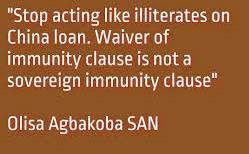By Tonnie Iredia
Over the years, the choices made by Nigerian voters during elections have always been either swapped, diverted or distorted making it difficult to get persons of integrity to represent Nigerian communities in several government positions. Going by recent public agitations, group rallies and general discussions, it has become obvious that Nigerians are anxious to bring to an end that pattern of convoluted voting process beginning with the forthcoming general elections of 2027.
It is precisely the foremost motivation for the specific and exceedingly loud demand everywhere for real-time electronic transmission of election results. Those who think the posture is an unnecessary frenzy or a deliberately organized effort by some opposition politicians to heat up the polity do not fully appreciate the historical context of the subject.




















